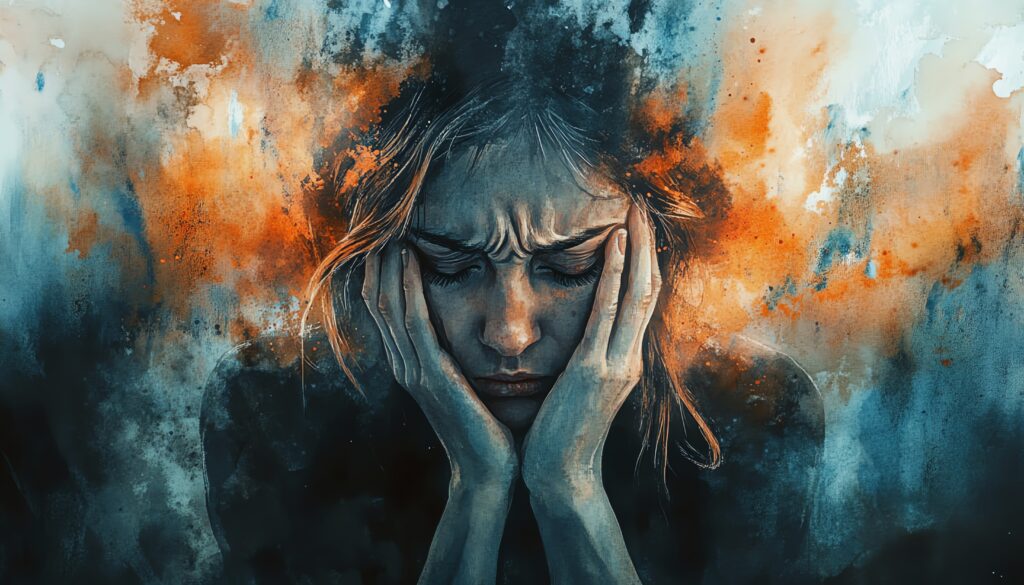1) Only crazy people see therapists
Most people that see a therapist are experiencing distress in one or more areas of life. If experiencing emotional distress is sign of being crazy than all human beings are crazy at one point or another. The fact is, asking for help is not a sign of insanity. It is a sign of intelligence and strength. We all know that two heads are better than one. Sometimes having an outside perspective can help with those sticky places. Most people would advise seeing a clinician if you were experiencing physical pain. How come we don’t have the same respect and recommend the same treatment for emotional pain?
2) If you don’t start feeling better right away it’s not working!
Sometimes it gets worse before it gets better. Many of us tend to bury and repress uncomfortable memories/ emotions by using unhealthy coping mechanisms. Basically we numb. We numb with TV, food, sex, etc. At first therapy is sought out to help terminate unwanted ways of being. Unfortunately, once the behavior stops there is nothing to numb the pain. That pain is exactly what you have been avoiding, but necessary to uncover and feel in order to resolve. Hang in there if the pain has gotten worse. You are finally getting somewhere!
3) I don’t need a therapist. I have family and friends that can do the same job.
Have you ever noticed how unhappy you are after talking with certain friends or family members about your problems? There are two problems with using friends and family when you are in crisis.
1) They are subjective. They have a personal stake in how you behave and what you decide to do. If you ask your mother whether you should leave your husband, you are going to get a very skewed response depending on how it affects her.
2) Sometimes crisis can have you feeling like you need to talk about it all of the time! Family members and friends are great with small problems, but overloading them with the big ones can strain your relationships.
4) Therapists only want to talk about your childhood
Although talking about your family of origin is important to clarify what’s happening now. It is not the end all, be all, of therapeutic interventions. If there has been trauma in the past that has not been resolved it is beneficial to re-visit those memories in a safe environment to work through the emotional heartache. Otherwise, if the trauma has been resolved digging around in there can be re-traumatizing and actually cause more damage. A good therapist will start where the client is. If that is in the present, than that is where the therapy should remain.
5) Medications do the same job as a therapist
Medications can help manage debilitating symptoms, but they do not resolve the core problem. Think of medication like a Band-Aid. It can cover the wound and protect it from further damage, but without knowledge of the origin / cause of the wound it may fester or return. Medication and therapy work as a great team, but medication without therapy can sometimes cause a dependency on the pharmaceutical. Contact me at goodtherapysandiego.com to learn more about who prescribes medications and who doesn’t.
6) Therapists give advice
Therapists will give psycho-educational advice on mental health subjects. For instance, a therapist might tell you the best evidence-based methods to fight depression, get a good nights sleep, or teach you how to communicate more effectively. Other than that, a good therapist will not give personal advice. He or she will guide you to find the solutions to your own problems. This way you have ownership of the solution and you are much more likely to follow through. This way of relating creates authenticity and empowerment within the client.
7) Therapy is like having to pay a friend
A therapist will not tell you what you want to hear like a friend might. In fact, therapists have rules about dual relationships for that reason. Your therapist cannot be your friend, business partner, or family member because confidentiality would be compromised. Sometimes it is hard to open up to someone you care about because you are afraid of judgment, loss of respect, or possible betrayal of trust. This way your relationship with your therapist is a mirror of what you allow to be in the room, your truth.
8) Therapists only listen
It is true that silence is a valuable therapeutic tool that therapists use when actively listening to their client’s struggles. Yet, listening is just the tip of the ice burg. Therapists are extensively trained to diagnose and treat emotional symptoms using evidenced-based treatment modalities such as: cognitive behavioral therapy, solution-focused brief therapy, dialectical behavior therapy, family systems, positive psychology, and many more. To learn more about treatment modalities and which treatment is best for you email me at goodtherapysandiego.com.
9) Therapists are perfect and do not have their own problems.
This is impossible. Therapists are human beings and have the full range of problems and emotions you do. In fact, oftentimes therapists see their own therapists in order to get another perspective. Therapy is about becoming self-aware and accepting responsibility for your actions. Who wants a therapist that is not willing to do this?
10) Therapy cures people from feeling negative emotions
Therapy does not cure negative emotion. We have negative emotions for a reason. They are signals that something is wrong. I would not want my ability to feel fear compromised if someone was attacking me. The fear tells me that I either need to fight or fly. Therapy helps with the management of overwhelming negative emotion and the development of healthy coping skills. To learn more about when it’s time to see a therapist visit goodtherapysandiego.com.








